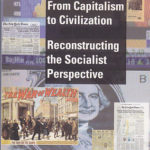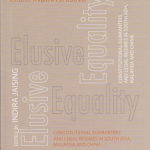Adventures into the Unknown
£8.95
D.D. Kosambi
Edited by Ram Ramaswamy
9789383968114
As the essays in Adventures into the Unknown testify, even half a century after his death in 1966, D D Kosambi continues to be provocative, instructive, and contemporary.
Description
Many of the arguments that he makes in his two didactic and hitherto unpublished essays are insightful and incisive, and display, in a new setting, the range of his scholarship and the breadth of his interests. The other essays that are included here are his passionate advocacy of solar energy, and his posthumously published autobiographical essay that outlines his credo, and that lends its title to the book.
Contents
Preface
An Introduction to Lectures on Dialectical Materialism
On Statistics
Atomic Energy for India
Adventures into the Unknown
Review
The essays included in this volume, some published for the first time, demonstrate once again DD Kosambi’s impressive span of reading, and his amazing ability to make interconnections between scientific principles, creative literature and the world we live in. He claimed that he was primarily a mathematician but his vision clearly went far beyond that.
On reading the outline notes to his lectures on Dialectical Materialism one wishes that the text of the lectures had been available. He explains his understanding of Marxism both in theoretical terms as well as drawing from scientific examples and events of everyday life. For him Marxism was a tool of analysis best used by those capable of independent thinking.
These essays, as adventures into the unknown, represent yet another facet of a remarkable man.
— Romila Thapar
Damodar Dharmananda Kosambi (31 July 1907 – 29 June 1966) was an Indian mathematician, statistician, historian and polymath who contributed to genetics by introducing Kosambi’s map function. He is well known for his work in numismatics and for compiling critical editions of ancient Sanskrit texts. He is particularly known for his classic work An Introduction to the Study of Indian History. He is described as “the patriarch of the Marxist school of Indian historiography”. Kosambi was critical of the policies of then prime minister Jawaharlal Nehru, which, according to him, promoted capitalism in the guise of democratic socialism.




